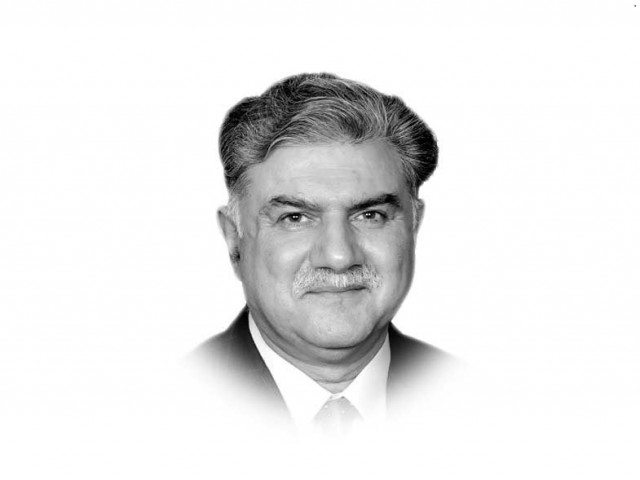Dialogue with TTP: lopsided rationale
TTP is unwilling to budge from its core demand of reversal of erstwhile FATA’s merger with KPK

Pakistan flew in tribal elders, Ulema, officials and stakeholders to ‘convince’ the outlawed Tehreek-e-Taliban Pakistan (TTP) to reconcile for peace in Kabul this summer, under the supervision of Islamic Emirate of Afghanistan (IEA), specifically the ‘Haqqani’ Group. The talks, commenced in October 2021, stand stalled as TTP apparently is unwilling to budge from its core demand of reversal of erstwhile FATA’s merger with Khyber-Pakhtunkhwa province. Requiring a constitutional amendment, such reversal is not happening. There are also reported objections by Pakistani interlocutors over TTP’s insistence to remain armed back home, consequent to a peace deal.
During the latest push to take the peace talks forward, a second Pakistani tribal delegation arrived in Kabul on 30 July 2022, following an Ulema delegation earlier, led by Mufti Taqi Usmani. Ulema also pressed TTP to lay down arms and return to Pakistan. The agreed ceasefire holds on paper at least, and Pakistan did release some TTP prisoners.
On June 22 this year, the Parliamentary Committee on National Security (PCNS) was briefed by Military leadership during a closed-door session in the PM House. The over-arching rationale for talks with the terrorists’ outfit touted by the government was/is “the fear of TTP fighters joining ISIS/Da’esh”. This is as flimsy a rationale as it can get.
TTP touches a raw nerve. The memories of the APS Peshawar attack, killing innocent kids only because they studied in an Army school, are still fresh. The beheadings of countless soldiers and security personal all along, the kidnappings for ransom, the nihilist bombing of mosques even, still disturbingly flash back. The terrorist outfit does not respect Pakistan’s Constitution/laws, and strives for a state within a state. TTP’s continued reign of terror against security forces continues, whenever the lure of fake peace, lowers our guard.
So, as mentioned in earlier writings, it is not a sincere desire for peace that drives the TTP calculus. Pakistan’s stern warnings to the IEA of shutting down TTP safe havens inside Afghan territory; airstrikes on TTP’s hideouts on 16 April 2021; and IEA’s ‘impatient keenness’ to get rid of this legacy issue to regain sovereign control of the entire Afghanistan are the real drivers behind IEA/TTP peace overtures. Pakistan in December 2021 unsuccessfully targeted a senior Taliban leader, Faqir Mohammad, through a reported drone strike in Afghanistan’s eastern Kunar province. TTP’s re-entry this week into Peochar Valley, Swat was perhaps a ‘recce in force’ aimed at gleaning the security ‘pulse’.
TTP also realises that the Afghan swamp will eventually dry up for them, as continued usage of Afghan safe-havens upsets an ‘indispensable’ Pakistan, something that the IEA cannot afford. And like all insurgencies, TTP’s ‘exhaustion point’ (culminating point in military parlance) neared due to fatigue, casualties, falling recruitment and unfavourable politico-military environment may be reached sooner than later.
IEA crackdown on TTP is a divisive issue within Afghans for various reasons like IEA still finding its footing, presence of ISIS, and embarrassment the IEA faces over the US drone killing al-Zawahiri, etc. Moreover, reportedly the Qandahari component of IEA does not look eye to eye to Haqqanis’ protégé — the TTP. TTP and Haqqanis remained aligned during Jihad against the US/NATO.
So, Kabul/Islamabad’s fears that an estranged TTP/its splinter groups could swell ISIS ranks are misplaced for varied reasons. One; irrespective of the outcome of peace talks, die-hard TTP cadre has and will elope with Da’esh. Life without violence is meaningless for such nihilist elements. Two; in that eventuality, having pacified the ‘reconcilable elements’ within TTP, it would be operationally helpful for IEA to concentrate on ISIS alone, rather than looking over its shoulders towards an unpredictable TTP cadre. Three; ISIS threat is overblown and manageable for a combined IEA-Pakistan (indirect) Military enterprise. Four; ISIS plus or minus the TTP hardliners will have to be dealt with by both countries irrespective, now or in near future. And lastly, defeating and eliminating TTP from the Afghan soil will enhance IEA standing, regionally and internationally, paving the way for its ultimate recognition and economic salvation.
Pakistani Military/veterans and important national stakeholders are also not supportive in entirety of blank amnesty to TTP. Hard-nosed negotiations evoking riwaj (traditions), tribal laws and sharia, as necessary, need to drive the process. The ‘state’ concedes but only after the ‘citizens’ accept state sovereignty, lay down their arms, apologise and guarantee good conduct in future. In doing so, as mentioned previously, the ‘black elements’ with heinous crimes are dealt with/eliminated, using the stipulated process. If history is any guide, it was not too far in the past, when the British Army, using native troops, would exact revenge and reparations in the same mountains, whenever the Empire’s rights were infringed upon. Holding nerve is name of the game.
Due to differences among political parties for the anticipated outcomes, parliamentary oversight committee constituted will ensure sidelining of any unconstitutional or illegal TTP demands. Military should drive and spearhead the process, but its ultimate ownership must squarely rest with the Government of Pakistan.
As a way forward in ‘fighting and talking mode’ that the TTP seem to prefer, Pakistan in collaboration with/acquiescence of IEA, should continue to target TTP cis/trans-frontier. According to Pakistan Institute for Conflict and Security Studies (PICSS), in 153 militant attacks, causing 293 deaths during first six months of 2022, most were attributed to TTP. A TTP armed with sophisticated weaponry left behind by withdrawing US/defeated ANA troops needs to be confronted forcefully, as any other outcome will embolden segments within the IEA to realise their grand designs, if any, for the region.
Afghan Taliban’s ascent to power and continued support enhances Pakistan a ‘positive leverage’ with IEA. Hopefully there would be little need for Pakistan’s ‘coercive leverage’ like the April airstrikes. Domestically, shunning complacency, TTP’s Swat-like incursions must be eliminated with full force. In a pragmatic policy calibration, Pakistan should take IEA on board for neutralising TTP. One hopes the August 7 killing of TTP leaders including Omar Khalid Khorasani inside Afghanistan’s Paktika province had some harmonisation.
Politically, Mullah Hibatullah Akhundzada, the IEA spiritual leader, be persuaded to decree against TTP renegades who target a Muslim Pakistan, misuse Afghan soil/hospitality and violate IEA commitment to the World.
Coup from within should to be our ‘Main Effort’ now.
Published in The Express Tribune, August 11th, 2022.
Like Opinion & Editorial on Facebook, follow @ETOpEd on Twitter to receive all updates on all our daily pieces.















COMMENTS
Comments are moderated and generally will be posted if they are on-topic and not abusive.
For more information, please see our Comments FAQ